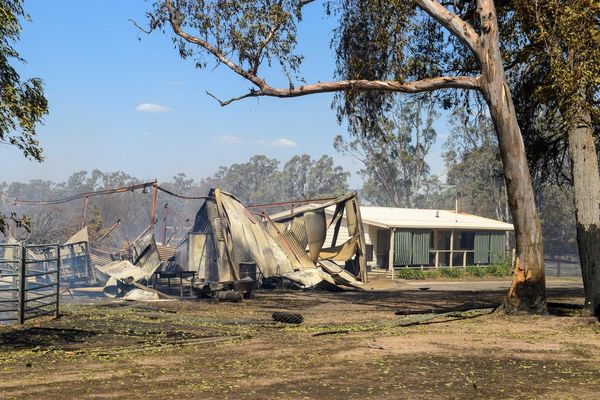When Cody Campbell co-founded The Matador Club, Texas Tech’s exclusive Name, Image and Likeness collective, he and his partners consulted attorneys and NCAA experts to ensure they did everything by the book.
After a recent memo from the IRS warned that NIL collectives offering tax deductions for donations could be illegal, they sought guidance from tax attorneys as well.
“It’s just constantly trying to read the legal tea leaves,” said Campbell, a former Red Raiders offensive lineman and the co-founder and CEO of Double Eagle Energy in Fort Worth. “There’s so much of this that doesn’t have precedent.
“We just try to stay ahead of it and stay on top of it, and it just seems like every month — and here lately it’s been every week — something new comes out and sort of changes the game.”
Without federal legislation, different state laws have created an uneven landscape in a college sports world the NCAA once ruled alone. It’s ever changing, as Campbell said, as this week proved.
On Saturday, the NIL bill Texas lawmakers passed during this year’s legislative session, HB 2804, goes into effect. Its changes essentially allow colleges — and potentially private institutions, based on the interpretation of the bill’s text — to interact with collectives and other third-party entities.
The bill also seemingly undermined the NCAA’s reach, saying that no athletic conference or group can prohibit Texas colleges from participating in sports or penalize them for engaging in activities the new law authorizes.
The timing may be coincidental, but the NCAA sent its member colleges a memo Tuesday afternoon regarding NIL and differing state laws.
“The Association has been clear and maintains that schools must adhere to NCAA legislation [or policy] when it conflicts with permissive state laws,” read the letter the NCAA shared with The Dallas Morning News.
“In other words, if a state law permits certain institutional action and NCAA legislation prohibits the same action, institutions must follow NCAA legislation.”
After Gov. Greg Abbott signed the bill this month, multiple colleges announced new partnerships with NIL collectives, including Texas and Texas Tech. Texas A&M had lawyers help write the bill and officials testify in favor of it, according to The Eagle.
A&M announced in February that its 12th Man Foundation — a 501(c)(3) independent from the university — was launching an NIL initiative that would allow donors to contribute to a fund for student athletes while earning points toward perks.
The NCAA sent a memo in March targeting but not explicitly opposing the initiative, according to Sports Illustrated.
It said institutions may not provide assets or perks to donors for contributing to an NIL fund, which Texas A&M’s 12th Man+Fund has promoted since February. Texas planned to start doing the same on Saturday through its One Fund collective, partnering with the Longhorn Foundation.
Mit Winter, a well-known NIL voice and attorney from Kennyhertz Perry in Kansas City, said he doesn’t expect the NCAA’s memo to stop groups from implementing their NIL-related plans.
“It’s basically become like a game of chicken,” Winter said. “The NCAA keeps putting out these reactive statements to things they hear people are going to do, and then people kind of continue on with their plans, and the NCAA puts out another memo.
“I think the big question is: Is the NCAA really ever going to try and penalize a school that is doing something contrary to NCAA rules, but is allowed under state law?”
The NCAA has so far levied only one NIL-related penalty. The University of Miami’s recruitment of twin basketball players Haley and Hanna Cavinder resulted in a three-game suspension for Hurricanes coach Katie Meier and a year of probation.
After the ruling and the suspension, Miami made it to this year’s Elite Eight, where they lost by eight to eventual national champion LSU.
The NIL landscape doesn’t affect the core of Texas Tech’s Matador Club, Campbell said. They garnered headlines with their pledge to pay 100 — now up to 120 — football players $25,000 per year in NIL benefits, as well as $10,000 per year to every member of the softball team, among other deals.
Campbell said the goal is to secure an NIL deal with every Red Raider athlete.
“Our setup and our platform are solid enough,” Campbell said. “We’ve thought things through well enough, and sought enough qualified advice … that we haven’t had to shift too much based on the different things that have come out, and that’s a positive.”







